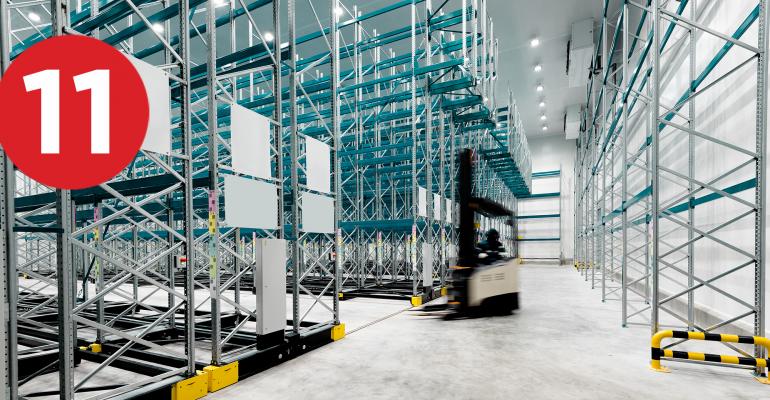- Bain Capital, Barber Team Up on $500 Million Plan for Cold Storage Warehouses “Private-equity firm Bain Capital is teaming up with real-estate developer Barber Partners LLC for a big bet on the hot market for cold storage. Bain and Dallas-based Barber Partners have formed a joint venture aimed at spending $500 million to build 10 to 15 refrigerated warehouses across the U.S. over the next three to five years, the firms said Tuesday, with the average facility spanning roughly 300,000 square feet. A 302,400-square-foot warehouse in Denton, Texas, will be the first project of the joint venture, called Chill Storage.” (The Wall Street Journal)
- California Four-Day Workweek Bill Is Shelved for Now “A proposal from California Democrats to institute a statewide four-day workweek for hourly employees has been shelved, for now. The bill failed to advance after the California State Assembly’s Labor and Employment Committee declined to set it for a policy hearing, said Evan Low, the Democratic state assembly member who co-wrote the proposed legislation. That decision effectively ends the bill’s chances of progressing in the current legislative session, he said.” (The Wall Street Journal)
- Rockpoint, ADIA to Invest $2B in Industrial Real Estate “Rockpoint Group LLC and a wholly owned subsidiary of the Abu Dhabi Investment Authority have formed a platform targeting industrial investment opportunities totaling about $2 billion, the companies announced Monday. This investment vehicle reportedly will focus on ‘build-to-core industrial investments in high barrier-to-entry locations across infill, demand-driven, gateway and growth markets in the U.S.’” (Commercial Property Executive)
- As Affordability Crisis Deepens, Policies and Market Shifts in Support of Affordability “A key reason why many at-risk renters have remained in their homes is the deployment of funds allocated in the Emergency Rental Assistance Program (ERA) — a funding pool designed to assist households that are unable to pay rent or utilities. The ERA Program was established as part of the Consolidated Appropriations Act of 2021, where it recived $25 billion in funding (ERA1), and then was reinforced with a second round of nearly $22 billion of funding (ERA2) in the American Rescue Plan. Through the fourth quarter of 2021, ERA funding was supporting 1.4 million households, according to the U.S. Treasury Department.” (Real Estate Business Online)
- Trump Settles Suit Over Payments to Hotel for 2017 Inauguration “The Trump family business and President Donald J. Trump’s 2017 inauguration committee have jointly agreed to pay $750,000 to settle a lawsuit filed by the attorney general for the District of Columbia, who claimed that the Trump International Hotel in Washington illegally received excessive payments from the inauguration committee. The settlement in the civil suit came with no admission of wrongdoing by the Trump Organization, the former president or the inaugural committee.” (The New York Times)
- Record Renewals Even at Record Rents: Apartment Residents Are Staying Put “How sustainable are these rising rents?” (Bisnow)
- Ghost Kitchens: Here to Stay or Ready to Disappear? “Over the past two years, the pandemic has made a major impact on the restaurant industry and how it has operated. Restaurants have also been able to rapidly evolve in this new climate, quickly adapting to balance customer’s needs and government mandates. One of the most popular trends for consumers is ghost kitchens.” (QSR Magazine)
- Workers in the Office Unhappier Than Their Remote Peers “There are more white-collar workers back in the office now than at any time since March 2020, and they’re more unhappy than ever. More than a third of workers across multiple countries reported being back in the office five days a week, and they were twice as unhappy as their remote-work colleagues, a survey out last month from Future Forum found.” (Commercial Observer)
- Docs: City Officials Knew ‘Volunteer’ Real Estate Guru Wanted Compensation “Deposition transcripts and other documents obtained by Voice of San Diego reveal that prominent downtown real estate broker Jason Hughes – who in 2013 agreed to advise the city for free – wasn’t shy about telling city officials and the city’s landlord that he wanted to be paid just over a year after announcing his volunteer role. Hughes later quietly inked a contract with soon-to-be city landlord Cisterra Development that promised him 45 percent of net profits if a city deal to acquire downtown high-rise Civic Center Plaza went forward and put him on the hook for 45 percent of the developer’s upfront costs if it didn’t.” (Voice of San Diego)
- Inside a Billionaire Family’s ‘Succession’-Style Battle for $440M in NJ Real Estate “This family is giving the Roy’s a run for their money. Like a page out of the hit HBO series ‘Succession,’ a prominent New Jersey family dynasty worth billions are being pitted against one another over real estate assets worth hundreds of millions. In a recent court filing obtained by The Post, prominent New Jersey real estate developer Dominick Alfieri, 82, is accused of trying to cut out his daughter, Jennifer Alfieri, from her share of the family assets and he’s teaming up with his son Michael Alfieri to do it.” (The New York Post)
- ‘Get Out of Our Way:’ Apple Workers Call on Company to Rethink Strict Return-to-Office Strategy “Employees writing in the letter pushed back against Apple’s two major rationales to support its return to office strategy—'serendipity’ and ‘in-person collaboration.’ On the first point serendipity, the employee’s claim the company’s expansive network of offices and ‘siloed’ culture already presented a barrier prior to pivoting to remote work. The employees went on to acknowledge the value of in-person collaboration but said that they didn’t believe it was necessary for most employees on a daily, or potentially even weekly basis. Instead, some of that time could be better spent allowing employees to engage in deep, unrestricted thought.” (Gizmodo)
0 comments
Hide comments





